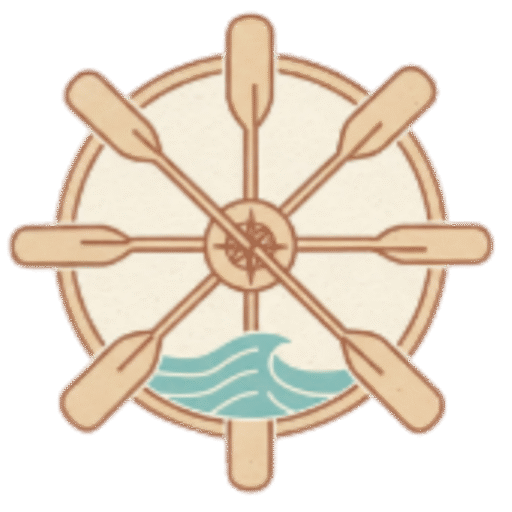Individual chapters in PDF format can be downloaded from RAFT Workbook Downloads & Links
This workbook is structured to be both instructive and engaging, making complex principles understandable and accessible without ever being patronising. Each chapter offers global explanations, connects to our core RAFT metaphor, and provides opportunities for self-reflection and journaling, along with supporting insights from science and philosophy.
How to Get the Most from Your Workbook
This workbook is designed around RAFT’s four goals. Each goal contains chapters exploring key concepts and practices. Most chapters include:
- Global explanation Introducing the topic and its relevance
- The RAFT metaphor Connecting the topic to our core metaphor
- Self-reflections Questions for immediate contemplation
- Journaling prompts Suggestions for deeper written exploration
- Supporting material Brief insights from neuroscience, psychology and philosophy
- Remember to remember Summarising the key takeaways
- Sutta references References to original Buddhist texts for (optional) further study.
We encourage you to engage with the material actively, use a journal, and be honest and kind with yourself. This is your journey, your raft. Here are some ways to maximise your experience:
- Active Engagement: Read each chapter with curiosity and an open mind, not just passively absorbing information.
- Use Your Journal: Most chapters include self-reflection questions and journaling prompts. These are not just suggestions; they are integral to the learning process. They invite you to personally apply the teachings and reflect on your own experiences.
- Be Honest and Kind: This journey requires honesty, especially with yourself, but always coupled with self-compassion. Remember that setbacks are opportunities for learning, not reasons for self-blame.
- Focus on the Process, Not Perfection: The path is about balanced, sustainable effort, not rigid self-punishment or an “all-or-nothing” approach. It is an ongoing practice, a dynamic process of “waking up” to life’s possibilities.
- Embrace the Middle Way: Learn to find balance in your efforts – neither too strained nor too relaxed – like tuning a lute string.
- Utilise Supporting Material: Chapters often include brief insights from neuroscience, psychology, and philosophy to deepen your understanding. This blend of ancient wisdom and modern science offers a comprehensive perspective.
- Explore Sutta References (Optional): If you wish to delve deeper into the original Buddhist texts, relevant sutta references are provided for optional further study.
- Patience and Persistence: Transformation takes time and consistent effort. Trust in your capacity to learn, grow, and heal. Revisit concepts as needed; repetition is a very effective teacher.
- Adapt Practices: Not every practice will resonate with everyone at all times. Feel free to adapt or set aside practices that evoke overwhelming negative feelings, prioritising your safety and well-being.
Community and Support
While you are the Captain, Navigator, and Crew of your own raft, you do not have to journey alone. We encourage you to engage with others on this path:
- Join a Community: We suggest meeting regularly with others in your support community(s), either online or in person, to explore the contents of this workbook. You will find suggested meeting formats and a directory of online meetings here.
- Connection is Key: Remember the powerful insight that the opposite of addiction is connection. Nurturing connections with wise friends and a supportive community provides invaluable encouragement, perspective, and accountability.
Are you ready to gather your materials, hoist your sails, and embark on this insightful voyage? We invite you to explore the chapters and begin building and navigating your route to freedom.
Remember to remember
You do not have to identify with addictions and/or compulsions, nor be a Buddhist, to benefit from this programme. You just need an open and caring, curious mind. There is no harm in dipping your toe in the water!
| RAFT to Freedom © 2025 by Dr Cathryn Jacob and Vince Cullen is licensed under CC BY-NC-SA 4.0. To view a copy of this license, visit https://creativecommons.org/licenses/by-nc-sa/4.0/ |
